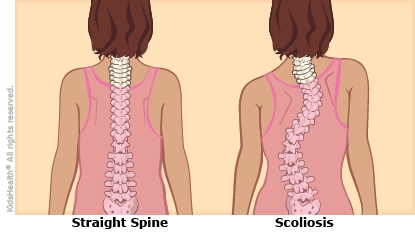- Home
- Parents Home
- Allergy Center
- Asthma Center
- Cancer Center
- Diabetes Center
- A to Z Dictionary
- Emotions & Behavior
- First Aid & Safety
- Food Allergy Center
- General Health
- Growth & Development
- Flu Center
- Heart Health
- Homework Help Center
- Infections
- Diseases & Conditions
- Nutrition & Fitness Center
- Play & Learn Center
- School & Family Life
- Pregnancy Center
- Newborn Center
- Q&A
- Recipes
- Sports Medicine Center
- Doctors & Hospitals
- Videos
- Para Padres
- Home
- Kids Home
- Asthma Center
- Cancer Center
- Movies & More
- Diabetes Center
- Getting Help
- Feelings
- Puberty & Growing Up
- Health Problems of Grown-Ups
- Health Problems
- Homework Center
- How the Body Works
- Illnesses & Injuries
- Nutrition & Fitness Center
- Recipes & Cooking
- Staying Healthy
- Stay Safe Center
- Relax & Unwind Center
- Q&A
- Heart Center
- Videos
- Staying Safe
- Kids' Medical Dictionary
- Para Niños
- Home
- Teens Home
- Asthma Center
- Be Your Best Self Center
- Cancer Center
- Diabetes Center
- Diseases & Conditions
- Drugs & Alcohol
- Expert Answers (Q&A)
- Flu Center
- Homework Help Center
- Infections
- Managing Your Medical Care
- Managing Your Weight
- Nutrition & Fitness Center
- Recipes
- Safety & First Aid
- School & Work
- Sexual Health
- Sports Center
- Stress & Coping Center
- Videos
- Your Body
- Your Mind
- Para Adolescentes
Congenital Scoliosis
What Is Congenital Scoliosis?
Congenital scoliosis is when the bones in a baby’s spine (vertebrae) don’t form normally before birth. The baby may be born with a curved spine or develop one later.
If needed, treatments can help kids with congenital scoliosis.
What Are the Signs & Symptoms of Congenital Scoliosis?
At birth, a baby with congenital scoliosis (sko-lee-OH-sis) might have no signs of the condition. When the child goes through a growth spurt at around age 2 or during puberty, these signs may show up:
- a curved spine
- uneven shoulders, hips, and/or waistline
- a head tilt
Rarely, congenital scoliosis can cause problems with the spinal cord or nerves.
Children with congenital scoliosis also might have problems with the way other organs (such as the heart, kidneys, stomach, and bladder) formed before they were born.

What Causes Congenital Scoliosis?
The cause of congenital scoliosis isn’t known. For some reason, as the baby grew before birth, problems with the vertebrae developed, such as:
- unusually shaped vertebrae
- missing vertebrae
- unusual spacing between the vertebrae
How Is Congenital Scoliosis Diagnosed?
If a health care provider thinks a child may have congenital scoliosis, they will order tests to look at the spine. These usually include:
- X-rays
- an MRI
They might order other tests, such as an ultrasound, to check for problems in other organs.
How Is Congenital Scoliosis Treated?
Doctors who treat problems with bones (orthopedic surgeons) care for children with congenital scoliosis. Some kids won’t need treatment. They will have regular visits so the doctor can see if the spine gets more curved as they grow.
Other children will need treatment. Some types of scoliosis are treated with a back brace, but these usually don’t help kids with congenital scoliosis. Instead, doctors usually do surgery to help straighten the spine. A surgeon might:
- Place growing rods to straighten the spine as a child grows.
- Do spinal fusion surgery, straightening the spine as much as possible and using rods and screws to hold it in place.
- Do surgery to keep the chest bones expanded, which make space for the growing lungs and helps keep the spine straight.
What Else Should I Know?
Children with congenital scoliosis often have other medical problems. Getting care from medical specialists along with the scoliosis care team will help many kids live healthy, active lives.

© 1995- The Nemours Foundation. KidsHealth® is a registered trademark of The Nemours Foundation. All rights reserved.
Images sourced by The Nemours Foundation and Getty Images.